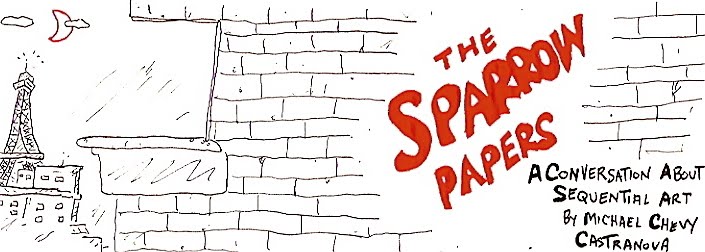 This year’s sold-out Ohio State University event was very much as I recall the very first Festivals of Cartoon Art — lots of speakers and panelists covering comic strips, comic books, graphic novels, editorial cartoons and animation (plus, this year, much talk about online comics), as well as professionals who weren’t presenters but came anyway.
This year’s sold-out Ohio State University event was very much as I recall the very first Festivals of Cartoon Art — lots of speakers and panelists covering comic strips, comic books, graphic novels, editorial cartoons and animation (plus, this year, much talk about online comics), as well as professionals who weren’t presenters but came anyway.So along with the presenters such as Art Spiegelman (Maus), Matt Groening (Life in Hell and The Simpsons), Jen Sorensen (Slowpoke), Dan Piraro (Bizarro) and Bill Griffith (Zippy), also milling around between sessions was Lynn Johnston (For Better or For Worse), Jeff Smith (Bone), editorial cartoonist J.P. Trostle, New Yorker art editor Francoise Mouly and Jeff Keane (The Family Circus). And those are just the ones I happened to spot.
Here are some bits of wisdom I picked up during and between sessions:
• Comics, declared James Sturm (The Golem’s Mighty Swing), are not a combination of writing and drawing, but of poetry and graphic design. Nicely put, right? Read that again.
• Jan Eliot (Stone Soup) draws how people “feel, not how they look.” She added it’s hard to come up with kids-outdoors ideas — in the woods, playing in snow — not already done by Bill Watterson (Calvin and Hobbes).
• Roz Chast, one of The New Yorker’s 20 staff cartoonists, submits five cartoons a week for consideration.
She noted an idea evolves as she draws it. She confessed to resubmitting rejected ideas, months later and after “some reworking.” “Everybody does it,” she added.
• Gene Luen Yang, discussing his American-Born Chinese graphic novel, recalled his mother told him not to draw the Monkey King barefooted. The centuries-old character always wore shoes, she claimed, because he didn’t want “people to know he’s a monkey.” Which, of course, dovetails beautifully with Yang’s primary theme of cultural ambivalence.
• Dave Kellett, creator of Sheldon and one of the authors of the book How to Make Webcomics, discussed the benefits of disintermediation — how, for online comics, there is the artist and audience, and all the people in the middle of the traditional food chain are gone.
More to come on this year’s very worthwhile event ….
A link to the Festival’s site is here.

No comments:
Post a Comment